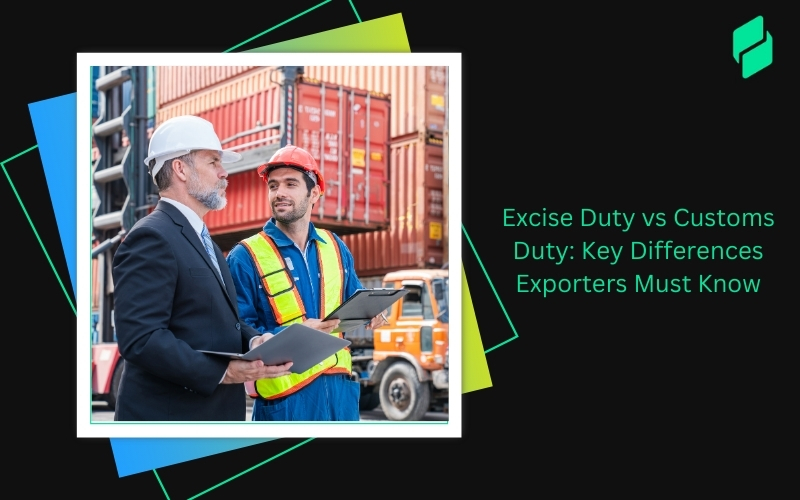Optimize your business: use unlimited savings with Pazago fulfilled now!
Get Started ->Have you ever wondered who owns the goods crisscrossing our vast oceans? In the intricate web of international shipping, the role of Beneficial Cargo Owners, or BCOs, is pivotal but often overlooked.
Understanding the BCO meaning in shipping clarifies the flow of global trade and highlights the complexities of the import and export business.
Who Are Beneficial Cargo Owners?
A Beneficiary Cargo Owner (BCO) is any individual or entity directly owning or having a significant interest in the shipped cargo. Unlike freight forwarders or third-party logistics providers, BCOs take ownership of the cargo at its origin and are invested in its journey until it reaches its final destination.
This direct involvement can include manufacturers, retailers, or any company that requires goods to be transported over long distances.
Example of BCO in Shipping
Imagine a company in Germany that makes educational toys. This company, let's call it "EduToys GmbH," ships its products to stores in the United States.
How EduToys GmbH Functions as a BCO:
- Ownership: EduToys GmbH owns the toys from the time they are produced until they reach the stores in the U.S. They are directly interested in their safe and timely delivery.
- Direct Shipping Arrangements: EduToys GmbH arranges shipping directly with a cargo carrier instead of using a logistics company. They negotiate the terms and schedule shipments to align with their production cycles and market demands.
- Handling Logistics: EduToys GmbH manages the packing and transportation of the toys, ensuring they are securely loaded onto the ship bound for the U.S.
- Customs and Compliance: The company handles all the export paperwork needed to comply with German export laws and U.S. import regulations.
- Cost Management: By handling these tasks themselves, EduToys GmbH cuts out intermediaries, reducing costs and offering lower prices to U.S. consumers.
- Quality Assurance: Once the toys arrive in the U.S., EduToys GmbH ensures they are distributed correctly and meet quality standards.
The Evolution and Role of BCO in Shipping :SCM Context
Let's dive into how BCOs have adapted to modern demands and why they are crucial to the efficiency and safety of international shipping.
Traditional vs. Modern Roles of BCOs
Traditionally, BCOs were primarily concerned with the ownership and storage of their cargo. Their involvement in the logistics was often limited to overseeing the arrival and storage of goods. Fast forward to today's fast-paced, globalized economy, the role of BCOs has expanded immensely.
Now, BCOs are not just owners but proactive participants in the planning and executing of the shipping process. They work closely with shipping lines, customs agents, and logistics providers to optimize every supply chain step.
The need for more control over the complexities of global supply chains has driven this shift from a passive to an active role.
Importance of BCOs in Safety and Contract Negotiation
Why are BCOs so crucial in today's supply chains? First, consider product safety. BCOs ensure the shipped goods meet all safety standards and regulations, preventing costly recalls or legal issues.
They also play a vital role in negotiating shipping contracts that tailor specific requirements to their needs, such as temperature controls for perishable goods or enhanced security for high-value items.
By directly negotiating these terms, BCOs can secure better rates and more favorable terms, which can directly impact the cost-efficiency and reliability of shipping operations.
Impact on Optimization, Efficiency, and Cost Reduction
The most significant impact of BCOs in the supply chain is their ability to optimize and streamline operations. BCOs' direct involvement allows for better forecasting, planning, and execution of shipping strategies, leading to enhanced efficiency.
They can implement just-in-time delivery methods, reduce inventory costs, and minimize wastage. This hands-on approach not only saves money but also improves the overall speed and reliability of the supply chain, making it possible to respond swiftly to market changes and consumer demands.
Pazago can simplify the logistics and customs clearance for businesses like yours, enabling them to efficiently manage their international shipments.
The Operational Control and Impact of BCO in Shipping
Real-time Shipment Tracking
- BCOs utilize advanced tracking systems and logistics software, allowing them to monitor their shipments around the clock.
- This direct oversight helps BCOs make informed, timely decisions, enhancing the security and reliability of cargo transit.
Proactive Problem Management
- With real-time data, BCOs can quickly identify and address delays or disruptions in the shipping process.
- This level of responsiveness ensures that issues are resolved promptly, minimizing potential delays and maintaining supply chain fluidity.
Efficient Documentation Handling
- BCOs manage all necessary paperwork for international shipping, including bills of lading, invoices, and certificates of origin.
- Proper documentation is crucial for smooth customs clearance, helping avoid delays, fines, or seizure of goods.
Compliance with International Trade Regulations
- BCOs ensure all shipments comply with relevant international laws, trade agreements, and regulations.
- This meticulous compliance is vital for avoiding legal issues and facilitating faster clearance through customs.
Real-time shipment tracking is more than a convenience; it's a necessity. Pazago provides around-the-clock visibility into your shipments, empowering you with the information needed to make swift, informed decisions.
BCO vs Other Shipping Stakeholders
Pazago’s platform offers BCOs and other stakeholders a simplified, all-in-one solution for managing trade, from logistics to payment to insurance, streamlining operations and cutting down on unnecessary intermediaries.
BCO Contracting Methods and Their Impact on International Shipping
The decision-making process around contracting methods is crucial, directly affecting costs, efficiency, and safety.
Let’s explore how BCOs choose between direct and indirect channels for contracting and the significant benefits of their strategic decisions.
Direct vs. Indirect Contracting Channels: Implications for BCOs
Direct Contracting
- BCOs engage directly with Vessel Operating Common Carriers (VOCCs) or other service providers without intermediaries in direct contracting.
- This method offers BCOs greater control over the logistics of their shipments, including more transparent pricing and scheduling.
Indirect Contracting via Freight Forwarders and NVOCCs
- BCOs use Non-Vessel Operating Common Carriers (NVOCCs) and freight forwarders when contracting indirectly.
- These intermediaries handle the complexities of logistics and negotiations but can introduce additional layers of costs and reduce the BCO's control over the shipping process.
Benefits of Direct Negotiation and Bargaining Power
When BCOs choose to negotiate directly, they leverage several significant advantages:
- Cost Reduction: BCOs can significantly cut costs by eliminating intermediaries. Direct negotiations also allow for better control over freight rates and other contractual terms.
- Enhanced Safety and Compliance: Direct control enables BCOs to enforce stricter safety and compliance measures, directly coordinating with carriers to ensure that all regulations and standards are met rigorously.
Strategic Decision-Making: Contracting with VOCCs vs. Using Freight Forwarders and NVOCCs
Choosing whom to contract with is a strategic decision that BCOs must make based on their specific needs:
- Contracting with VOCCs: Ideal for BCOs with sufficient in-house expertise to manage complex shipping logistics. Larger companies or those with frequent, high-volume shipments often prefer this option.
- Utilizing Freight Forwarders and NVOCCs: Best suited for companies needing the logistics capabilities internally or those looking for specialized shipping solutions without the burden of managing every detail. This option can also provide flexibility and expertise in handling complicated international shipping regulations.
BCOs looking to make strategic decisions on contracting methods will find Pazago invaluable for both direct negotiations and managing relationships with freight forwarders and NVOCCs.
BCO and the Global Shipping Ecosystem
BCOs play a crucial role across various transportation modes:
- Maritime: As the backbone of international trade, BCOs negotiate directly with shipping lines to optimize sea freight routes and capacities.
- Rail: In rail transport, BCOs coordinate complex logistics to ensure that goods transition smoothly from ships to trains, minimizing delays and reducing inland transportation costs.
- Air Cargo: BCOs increasingly utilize air freight for high-value or time-sensitive goods, managing intricate logistics to ensure fast and secure delivery.
E-commerce Platforms and BCO Empowerment of End Customers
- BCOs increasingly partner with e-commerce platforms to streamline logistics operations, ensuring faster delivery times and enhanced customer satisfaction.
- This partnership empowers end customers by improving transparency. Thanks to sophisticated logistics solutions orchestrated by BCOs, customers can track their purchases in real-time.
- BCOs' ability to manage inventory and shipping logistics directly helps reduce overhead costs, which can translate into savings for customers.
Pazago also serves as a powerful partner for BCOs working with e-commerce platforms, offering a suite of tools designed to enhance customer satisfaction through improved delivery times and real-time order tracking.
Rethinking Traditional Sales and Marketing Approaches in Freight Transport
- Strategic Positioning: BCOs leverage their substantial cargo volumes to negotiate better terms and innovate marketing strategies, highlighting their logistical capabilities and reliability.
- Direct Customer Engagement: By engaging directly with end customers, BCOs gather valuable feedback that informs service improvements, helping them better meet market needs.
- Innovative Solutions: BCOs are at the forefront of adopting technological innovations, such as blockchain for tracking and AI for managing logistics operations, setting new standards in the shipping industry.
Conclusion
In conclusion, the role of Beneficial Cargo Owners in international shipping is foundational and transformative.
They ensure the smooth and efficient transport of goods across international borders and drive innovations and improvements in supply chain management.
By optimizing every facet of the shipping process, BCOs save on costs and enhance the reliability and speed of global trade operations, making them true linchpins of international commerce.


.png)








